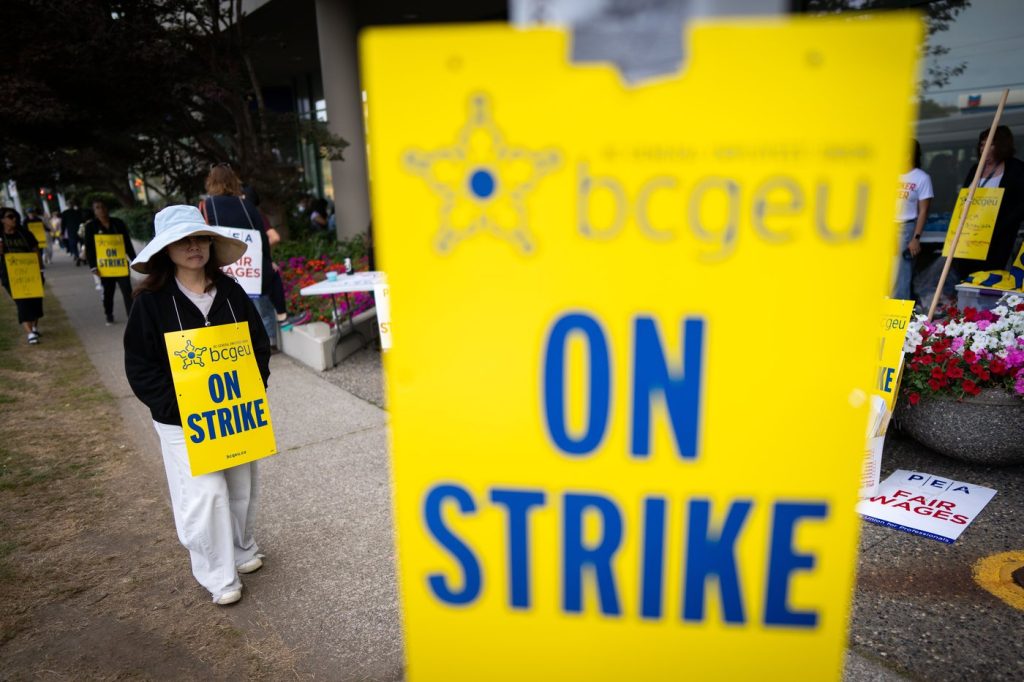VICTORIA – The ongoing dispute between the British Columbia government and public-sector workers continues to escalate, prompting British Columbia Finance Minister Brenda Bailey to acknowledge the ongoing back-channel work aimed at resolving the conflict. However, she has not provided a specific date for new negotiations. Bailey's remarks come during a time when members of the B.C. General Employees' Union have intensified their actions, including picketing in front of multiple liquor stores and at liquor and cannabis distribution warehouses.
The union represents approximately 34,000 workers, of whom around 14,000 are involved in various forms of job action, ranging from picketing to implementing an overtime ban. Their objective is to persuade the government to return to the negotiation table. Bailey emphasized that the government is eager to resume discussions and is actively working to create favorable conditions for this to happen.
Industry representatives have voiced their concerns regarding the impact of the dispute. Ian Tostenson, head of B.C.'s Restaurant and Foodservices Association, claimed that his members are being caught in the middle of this labor conflict and have begun to anticipate supply shortages by the week's end. Bailey noted that she has received feedback from some industry stakeholders who have begun stockpiling liquor in anticipation of disruptions due to the ongoing job action. Acknowledging the challenges faced by the liquor and restaurant sectors, she stressed the importance of balancing the needs of the workers with those of all British Columbians.
The B.C. General Employees' Union has been engaged in this labor action for four weeks and is demanding an 8.25 percent wage increase over two years, arguing that their pay has not kept pace with rising inflation. The union’s push for better compensation underscores the broader issue of cost-of-living adjustments in the province.
As the situation develops, both sides seem to be at an impasse, with the union determined to secure better wages, while the government claims to prioritize the interests of all citizens. Bailey's acknowledgment of the situation's complexity hints at the difficult balancing act the government faces in responding to the union's demands while also taking into consideration the economic repercussions of the ongoing strike.
This report highlights the ongoing tensions and the varying perspectives from both the public-sector workers and the government amidst this labor dispute in British Columbia. As picketing continues and job actions escalate, the potential for significant disruption in the liquor industry looms. Industry representatives prepare for possible shortages, which could further affect the urban economy as negotiations linger without resolution.











